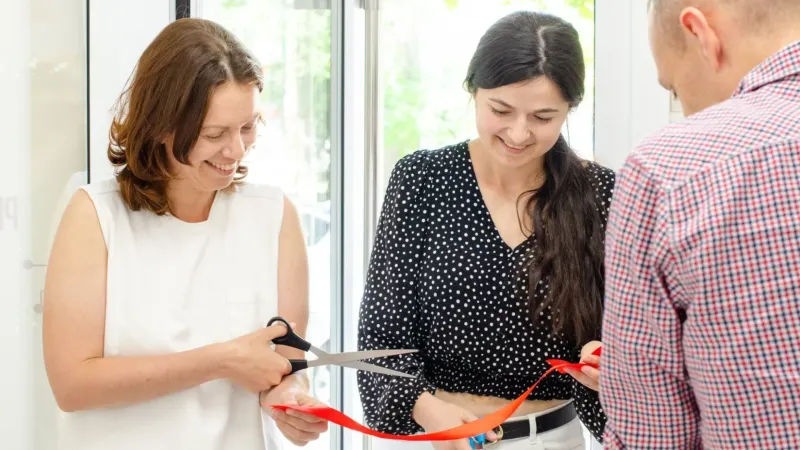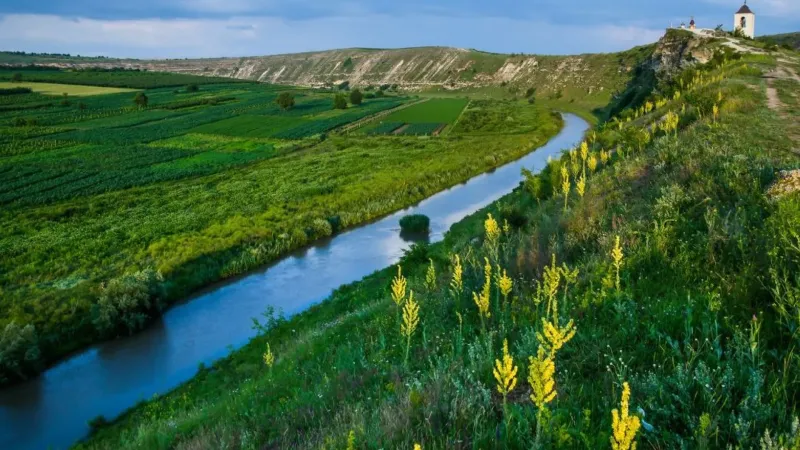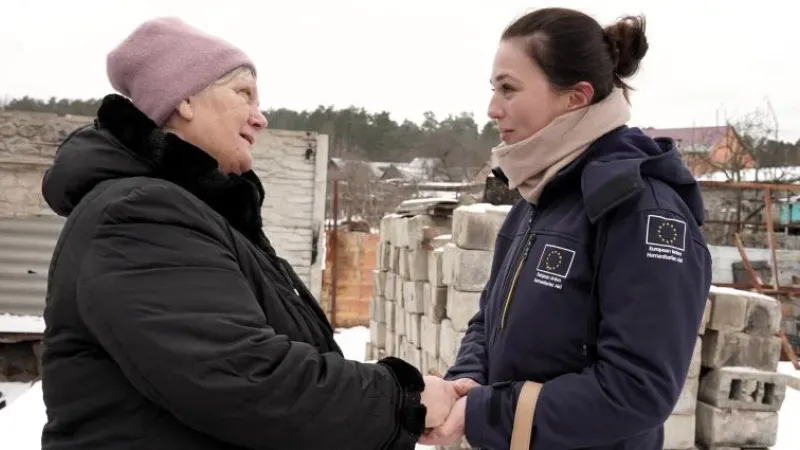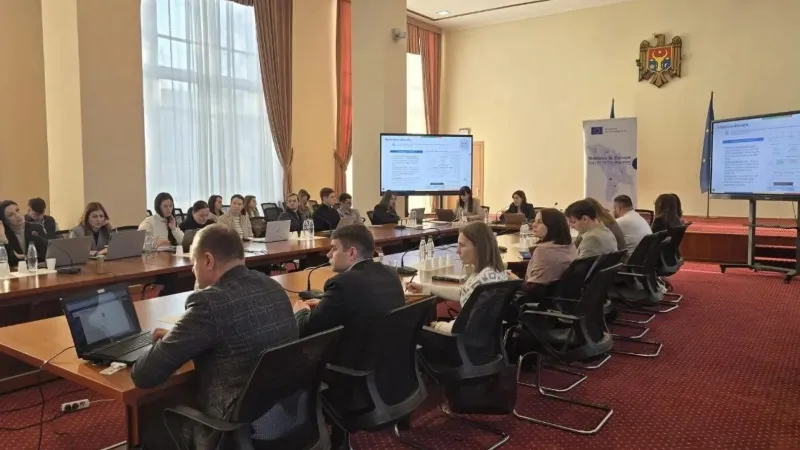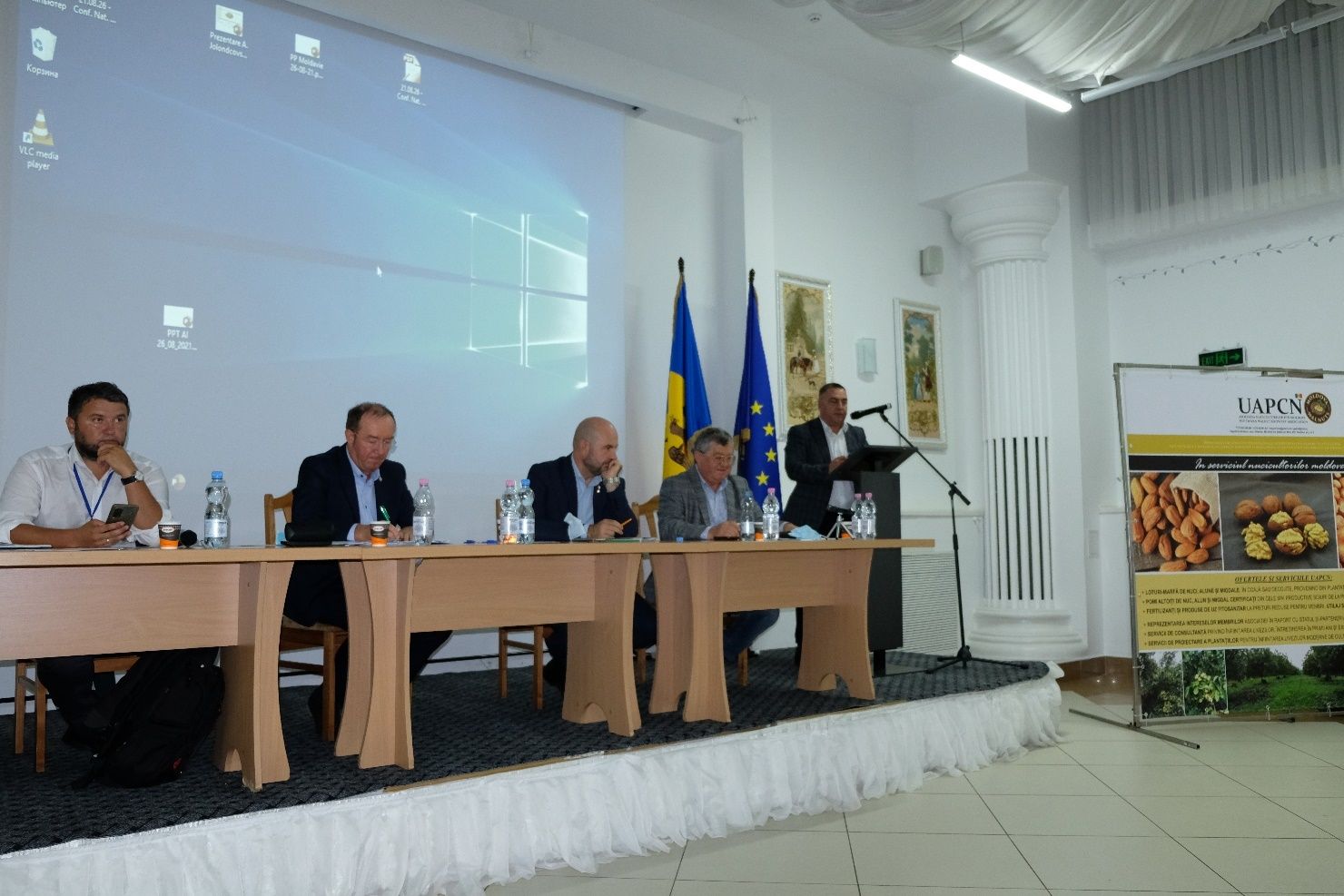
Expertiză UE pentru îmbunătățirea sectorului nucicol din Republica Moldova
Republica Moldova se află pe locul 5 în lista celor mai mari exportatori de nuci, iar în 2020, volumul exporturilor a fost de 12,7 mii de tone. Experții naționali și internaționali cred că sectorul nucifer din țară se află în pragul unor transformări importante, care ar putea duce la sporirea roadei, calității acesteia și, implicit, a competitivității pe piețele internaționale. Subiectul a fost discutat în cadrul Conferinței Naționale a Nucicultorilor, care a avut loc la Chișinău.
79% din exporturile de nuci sunt orientate spre țările UE, iar principalele state importatoare sunt Franța, Germania, Olanda, România și Austria. Totodată, constituind 5% din volumul exporturilor horticole, cultura nuciferă înregistrează o valoare monetară de 50% din acestea. Nucicultorii cred că volumul exporturilor ar putea crește și mai mult, de la 120 de milioane de dolari, în prezent, până la 200 de milioane.
„Astăzi, cea mai mare oportunitate care există pentru sectorul acesta este faptul că noi suntem în proximitatea geografică a celei mai mari zone importatoare de nuci din lume, care este Uniunea Europeană, cu aproape 40% din importurile totale din lume. Noi suntem la hotarul UE, cu relații privilegiate, cu Acord de Asociere. Ne bucurăm deja de o relație bună în colaborarea cu importatorii europeni, ei au încredere în procesatorii noștri. În linii mari, s-a creat o colaborare foarte strânsă și aceasta este, de fapt, garanția faptului că acei care fac investiții în domeniu sunt asigurați”, a declarat președintele Asociației Nucicultorilor, Oleg Tîrsînă.
Specialiștii cred că ar fi nevoie de extinderea gamei de produse nucifere care sunt exportate, menționând că Republica Moldova are un potențial mare în acest sens, care poate fi valorificat.
„Noi nu avem prea mare concurență, cu solurile noastre și cu modul în care noi muncim și prețurile care sunt într-o continuă creștere – ne fac să fim foarte optimiști în ceea ce privește viitorul acestei ramuri. Ne vom axa și pe soluții de subvenționare a acestei ramuri extrem de importante”, a declarat președintele Comisiei parlamentare agricultură și industrie alimentară, Vladimir Bolea.
În Republica Moldova sunt plantate circa 20 de mii de hectare de livezi de nuc, dintre care 15 mii de hectare, adică 75%, sunt soiuri vechi. Potrivit specialiștilor, aceste livezi au nevoie de modernizare pentru a oferi un randament dublu și o roadă de calitate mai bună.
Cu recomandări a venit Pascal Gouget, unul dintre cei mai buni experți europeni în domeniu, aflat în Republica Moldova la invitația Asistenței Tehnice pentru Proiectul Livada Moldovei, finanțat de Uniunea Europeană și Banca Europeană de Investiții.
Pascal Gouget a efectuat recent mai multe vizite în livezile de nuc din țară și a reușit să discute cu producătorii moldoveni.
Potrivit specialiștilor, 30-35% din producția exportată de nuci provine din plantații, iar restul vine din fâșiile de aliniament. Din acest motiv, o altă recomandare este producerea nucilor în plantații comerciale, așa cum se întâmplă în țările care au un sector nucifer dezvoltat. Acest lucru necesită investiții importante, iar linia de creditare a Proiectului Băncii Europene de Investiții, Livada Moldovei, este una opțiunile de finanțare. Potrivit consultantului în comunicare al proiectului, Iurie Vîrlan, de la lansarea liniei de creditare în 2016 și până în prezent, 15 producători și procesatori de nuci, migdale și alune au beneficiat de aceste credite cu suma totală a proiectelor investiționale în valoare de 8,7 milioane de euro.
„În ședință de Guvern a fost aprobată reluarea negocierilor și extinderea contractului cu Banca Europeană de Investiții cu un sold de 60 de milioane de euro pentru modernizarea sectorului horticol. Acest credit ne permite ca agricultorii să nu întâmpine deficiențe financiare la implementarea investițiilor, fiind facilitat în paralel de acest instrument de intervenție și plăți în sector”, a declarat ministrul Agriculturii și Industriei Alimentare, Viorel Gherciu.
Livada Moldovei este o linie de creditare oferită de către Banca Europeană de Investiții, care a devenit operațională în 2016. Prin intermediul acesteia sunt puse la dispoziție creditele destinate investițiilor în sectorul horticol. Până în prezent, în cadrul liniei de creditare Livada Moldovei au fost finanțate 264 de proiecte investiționale, fiind alocată suma de 57,3 milioane de euro.

